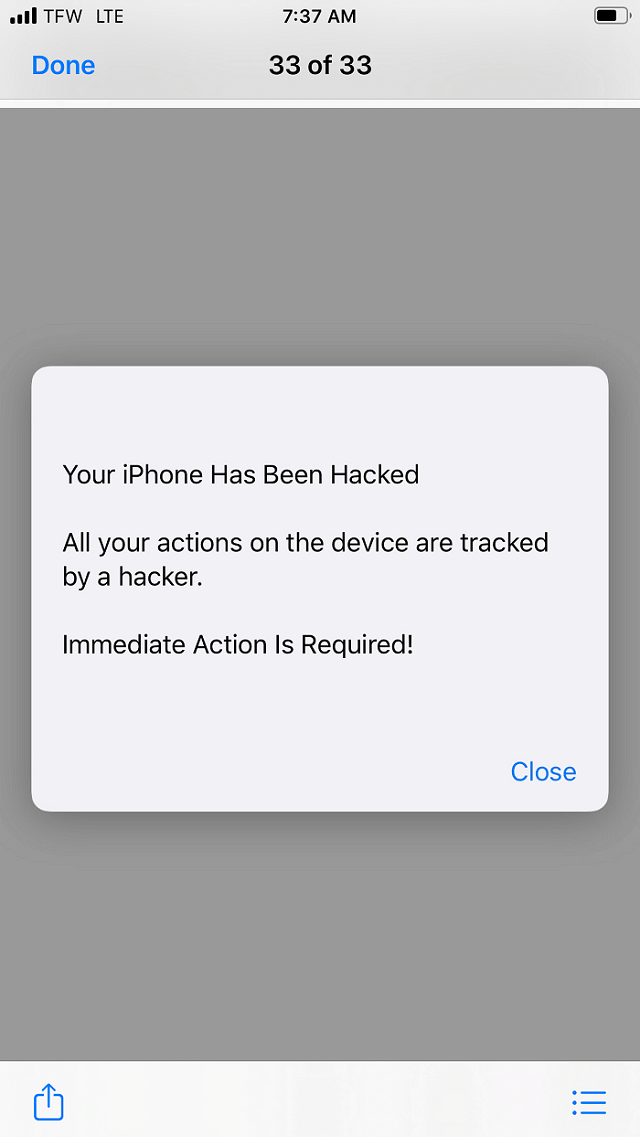In today's digital age, our devices hold a treasure trove of personal information. From banking details to private conversations, the data stored on smartphones and tablets makes them prime targets for cybercriminals. Understanding the subtle signs that your device might be compromised is crucial for safeguarding your sensitive information. In this article, we will explore ten common indicators that your phone may have been hacked and provide actionable steps to protect yourself immediately.
Recognizing the signs of a hacked device can help you take swift action to mitigate potential damage. Whether it's an unexpected increase in data usage or strange pop-ups appearing on your screen, these red flags should not be ignored. By staying vigilant and implementing robust security measures, you can significantly reduce the risk of falling victim to cyber threats. Read on to discover how to identify if your phone has been compromised and what steps you can take to secure it.
Identifying Battery Drain as a Warning Sign
A fast-draining battery could indicate that your phone has been compromised. When malware infects a device, it often runs background processes that consume significant power, leading to quicker battery depletion. This symptom is one of the most common warning signs that something is amiss with your phone.
In addition to increased battery consumption, overheating can also occur due to the excessive activity caused by malicious software. If your phone feels unusually warm during normal use, it might be worth investigating further. These issues are not always indicative of hacking but should raise suspicion when paired with other unusual behaviors.
To address these concerns, consider using a reliable antivirus app to scan your device for any potential threats. Regularly monitoring your phone’s performance and addressing any anomalies promptly can help prevent more severe consequences down the line.
Observing Changes in Device Performance
One of the first noticeable changes after a phone has been hacked is a decline in overall performance. Your once speedy smartphone may start lagging, taking longer than usual to load apps or browse the web. Such slowdowns can disrupt daily activities and signal underlying problems.
Beyond general sluggishness, specific tasks like opening files or switching between applications may become increasingly difficult. If you notice consistent delays while performing routine operations, it could mean unauthorized access has compromised your system resources. Keep track of any recent changes in how your device operates to pinpoint potential issues.
For optimal protection, update your operating system regularly and ensure all installed apps are from trusted sources. Staying informed about current cybersecurity trends and best practices will empower you to maintain control over your digital life.
Monitoring Pop-Up Advertisements
Unexpected pop-up advertisements while browsing the internet or even within apps can serve as another telltale sign of hacking. These intrusive ads often result from adware infections designed to generate revenue through fraudulent clicks. They may appear suddenly without user interaction and persist despite attempts to close them.
Such persistent advertising not only frustrates users but also poses privacy risks by collecting personal data without consent. Moreover, clicking on suspicious links embedded within these ads could expose your device to additional vulnerabilities. Be cautious about dismissing unfamiliar pop-ups and avoid interacting with them altogether.
To combat this issue effectively, invest in reputable ad-blocking tools and keep your browser extensions updated. Additionally, review app permissions carefully before granting access to sensitive functions such as location services or contacts lists. Taking proactive measures helps shield against unwanted intrusions.
Checking for Unauthorized Messages
Receiving messages you did not send or noticing unfamiliar numbers in your sent items folder can indicate unauthorized access to your communication channels. Cybercriminals sometimes exploit compromised devices to spread malware via text messages or emails, targeting unsuspecting recipients.
These rogue communications often contain harmful links or attachments meant to deceive others into downloading malicious software. If you suspect foul play, verify the authenticity of questionable messages with friends or family members who received them. Doing so prevents further propagation of the threat.
Implement two-factor authentication (2FA) wherever possible to add an extra layer of security to your accounts. Also, familiarize yourself with common phishing tactics used by attackers to impersonate legitimate entities. Knowledge serves as your strongest defense against becoming entangled in elaborate scams.
Addressing Strange Device Behavior
Strange pop-ups, unexplained app installations, or erratic behavior from pre-existing programs may point towards unauthorized tampering. Devices infected with malware frequently exhibit abnormal patterns that differ from their usual functioning. Pay attention to anything out of the ordinary since it could signify deeper problems lurking beneath the surface.
Unfamiliar applications appearing on your home screen without explicit installation requests warrant immediate investigation. Similarly, locked accounts requiring password resets or receiving unexpected multi-factor authentication codes suggest someone else might have gained access to critical systems. Act swiftly upon detecting such irregularities.
Employ comprehensive security solutions capable of detecting advanced threats and eradicating existing ones. Periodically back up important files onto external storage devices or cloud platforms to safeguard valuable information against loss during cleanup efforts. Maintaining backups ensures peace of mind knowing recovery options exist if needed.

